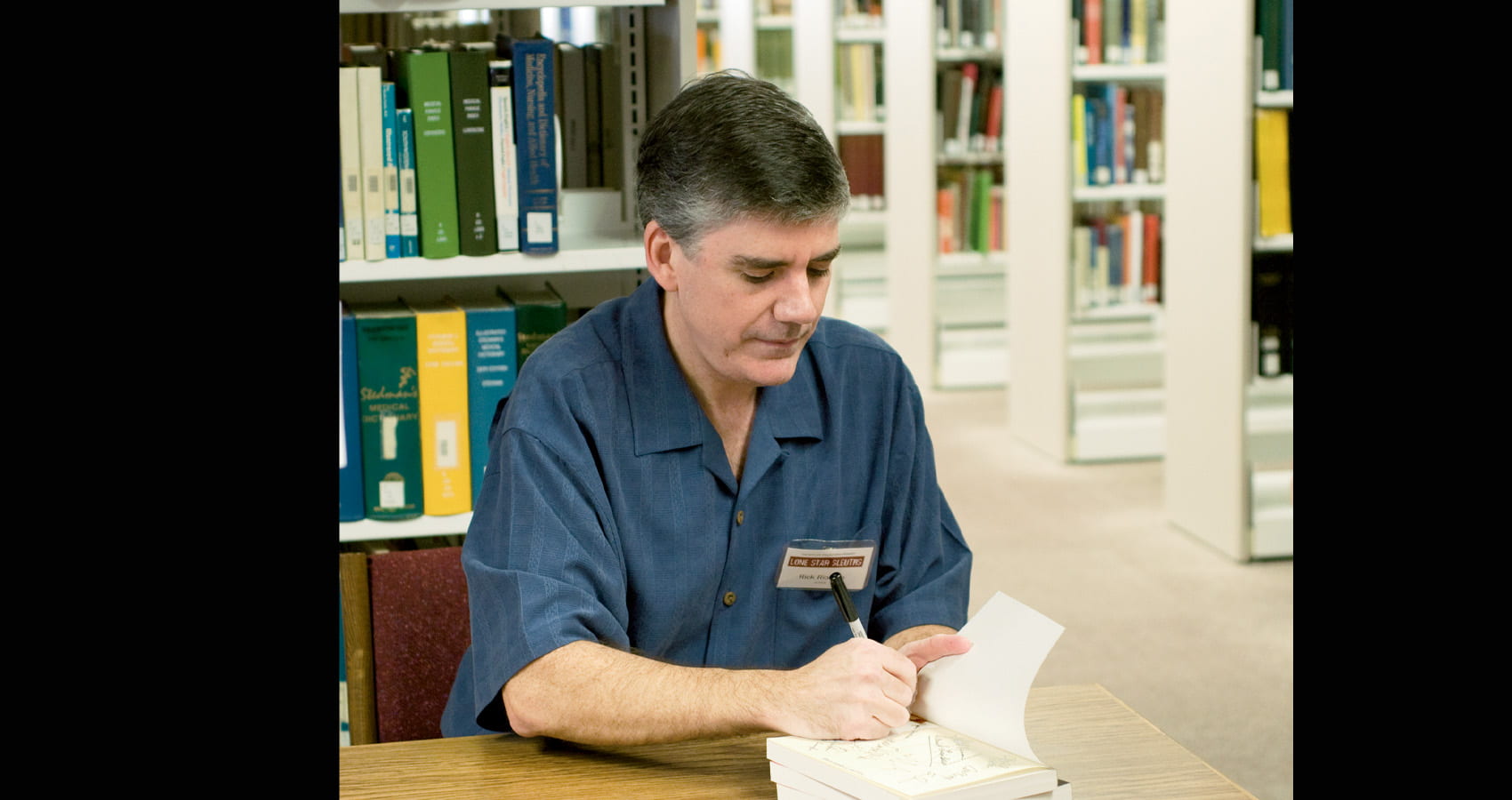(Originally published in the Fall 2010 edition of The Keystone)
RICK RIORDAN is the author of the #1 New York Times bestselling Percy Jackson and the Olympians series for children and the multi award-winning Tres Navarre mystery series for adults.
The Percy Jackson series features a twelve-year-old dyslexic boy who discovers he is the modern-day son of a Greek god. Riordan’s first book in that series, The Lightning Thief, was a New York Times Notable Book for 2005 and became a major motion picture in 2010. The five books in the series—now with millions of copies sold—have turned an entire generation on to Greek mythology.
Riordan taught middle-school English at Saint Mary’s Hall in San Antonio for many years, and in 2002 he was honored with the school’s first Master Teacher Award. He now writes full-time. He is also the author of The 39 Clues: The Maze of Bones. His newest series is the Kane Chronicles, which involves Egyptian mythology and premiered in 2010 with the release of The Red Pyramid.
Riordan began donating his literary papers to the Wittliff Collections in 2014. He has participated in Wittliff events, and he is a featured author in the Southwestern Writers Collection book series anthology, Lone Star Sleuths: Mystery / Detective Fiction from Texas. Riordan recently visited with Curator Steve Davis to talk about his writing.
Q. Did you always know you wanted to be a writer? How did you get started?
I wrote a lot of short stories when I was young, and my very first rejection note was from Isaac Asimov Science Fiction Magazine in 1978, when I was 14. My mother saved this for years, and brought it out after I got published.
I was never serious about writing in college. I focused most of my creative energy on music, and was lead singer in a folk rock band, if you can believe it.
After college, I became a teacher, and was quite happy with the idea of doing that the rest of my life. However, I read a lot of mystery books in my spare time, and when my wife and I moved to San Francisco, I started missing Texas.
I decided, on a lark, that I would try writing a hard-boiled private eye novel set in my hometown of San Antonio. Ten months later, Big Red Tequila was finished.
The strange thing is, I had a feeling that Big Red Tequila was going to get published. It just felt different than any- thing else I’d ever written, because the novel had practically forced me to write it. The idea took me by the throat and wouldn’t let me go until the manuscript was done.
I tell aspiring writers that you have to find what you MUST write. For me, that meant getting away from home for a while and learning to appreciate what I knew, before I could follow the old axiom, “Write about what you know.”
Q. How is writing a children’s book different from writing an adult book?
You know, when I was writing Percy Jackson, I didn’t find it much different than writing an adult Tres Navarre novel. I think kids want the same thing from a book that adults want—a fast- paced story, characters worth caring about, humor, surprises, and mystery. A good book always keeps you asking questions, and makes you keep turning pages so you can find out the answers.
I didn’t simplify anything to write The Lightning Thief. I didn’t worry about vocabulary or sentence length or book length or any of that. Of course, I tend to write in short, snappy sentences anyway, but I think it would be a mistake to “write down” to kids. They hate that. They want to be treated like intelligent and sophisticated readers, and who can blame them? I made sure the content was appropriate for young readers — after all, my own son was the first reader—but as far as the writing style, I hope Percy Jackson will be just as enjoyable for adults as it is for kids.
I did do my best to keep the book interesting. I’ve taught reading for many years, and I know that kids get bored with long descriptions that go on for pages and pages. They get bored with books that don’t seem to have a clear plot. I don’t think adult readers are much different. If anything, writing a children’s book made me a better adult writer, because I forced myself to tighten up my storytelling.
